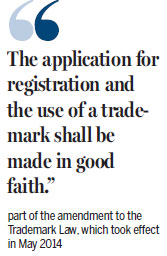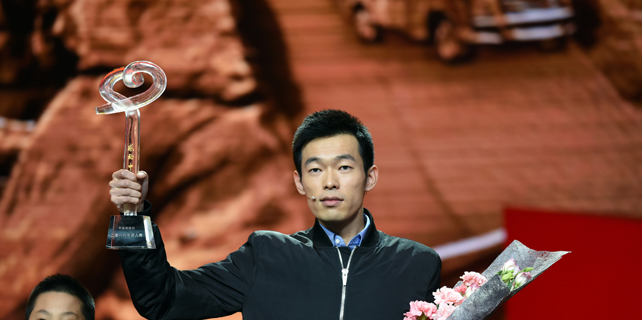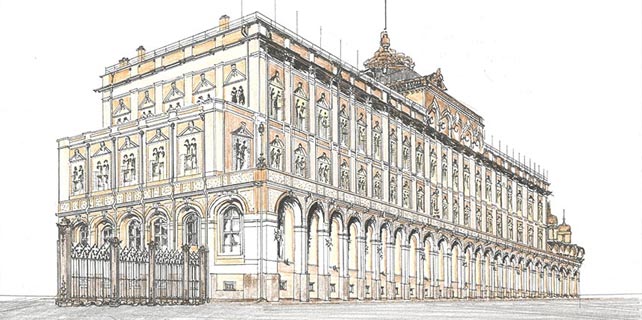Trademark law set for major shakeup
|
Left: The Nike symbol adorns the wall of a sporting goods store. Geng Guoqing / For China Daily Right: A pair of counterfeit sandals, bearing a fake logo. Zhang Bin / For China Daily |
Case numbers rise
According to statistics from the top court, more than 2,600 trademark cases were heard by the Beijing High People's Court between 2002 and 2009. In 2013, the number rose to 2,161, and in 2014, the court heard nearly 8,000 such cases.
In 2015, more than 7,500 cases were filed at the Beijing Intellectual Property Court, which was founded in November 2014-73 percent of them were related to trademarks, in addition to patent and copyright cases.
"The clear aim of the Chinese government, transmitted through the administrative bodies and courts throughout the country, is to deter trademark squatting and trademark infringement", Chatterton said.
"There is a lot of work to be done," he added, saying that he hopes the courts will require all parties in litigation to disclose a larger number of relevant documents in trademark cases to make it easier for trademark holders to prove the damage that has resulted from the infringement.
In addition to judicial efforts to strengthen the protection of trademarks, administrative organs at all levels have joined forces to tackle the problems involved in trademark registration, and reduce the risks of infringement.
Wang Lianjie, head of the Intellectual Rights Infringement Complaint Center in Beijing, said the application of trademark right, copyright and patent right, which together constitute intellectual property rights, is under the jurisdiction of three administrative departments.
For example, trademark registration has to be approved by the State Administration for Industry and Commerce and its branches, instead of the State Intellectual Property Office and its branches, she said.
She added that a pilot program has been launched to simplify government administration and better protect the three rights in Shanghai, which are now being overseen by the local Intellectual Property Bureau.
"It is international practice to grant one government entity, instead of three of them, the authority to oversee the protection of the three types of rights because they are closely related to each other. The initiative in Shanghai will be extended to other regions of the country as well as to the administration at the central government level," Wang said.











